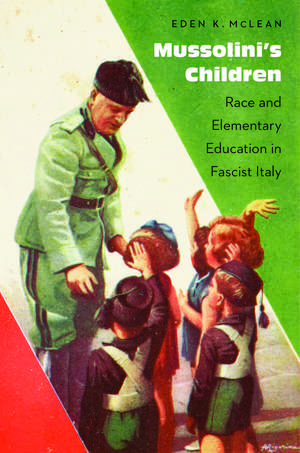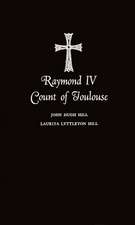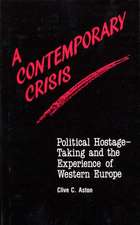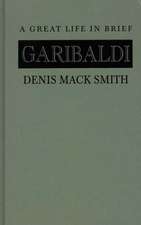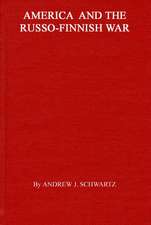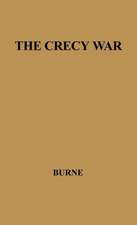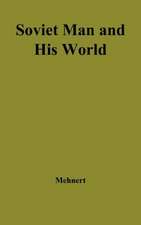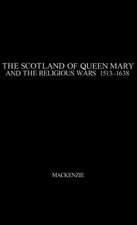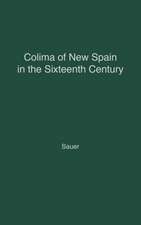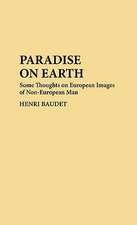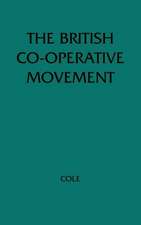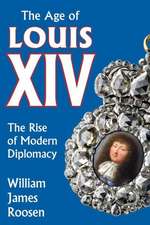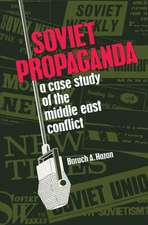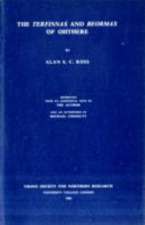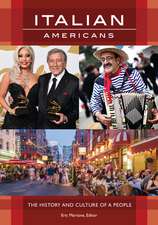Mussolini's Children: Race and Elementary Education in Fascist Italy
Autor Eden K. McLeanen Limba Engleză Hardback – 30 iun 2018
Mussolini’s Children uses the lens of state-mandated youth culture to analyze the evolution of official racism in Fascist Italy. Between 1922 and 1940, educational institutions designed to mold the minds and bodies of Italy’s children between the ages of five and eleven undertook a mission to rejuvenate the Italian race and create a second Roman Empire. This project depended on the twin beliefs that the Italian population did indeed constitute a distinct race and that certain aspects of its moral and physical makeup could be influenced during childhood.
Eden K. McLean assembles evidence from state policies, elementary textbooks, pedagogical journals, and other educational materials to illustrate the contours of a Fascist racial ideology as it evolved over eighteen years. Her work explains how the most infamous period of Fascist racism, which began in the summer of 1938 with the publication of the “Manifesto of Race,” played a critical part in a more general and long-term Fascist racial program.
Eden K. McLean assembles evidence from state policies, elementary textbooks, pedagogical journals, and other educational materials to illustrate the contours of a Fascist racial ideology as it evolved over eighteen years. Her work explains how the most infamous period of Fascist racism, which began in the summer of 1938 with the publication of the “Manifesto of Race,” played a critical part in a more general and long-term Fascist racial program.
Preț: 399.18 lei
Nou
Puncte Express: 599
Preț estimativ în valută:
76.39€ • 81.68$ • 63.69£
76.39€ • 81.68$ • 63.69£
Carte tipărită la comandă
Livrare economică 17 aprilie-01 mai
Preluare comenzi: 021 569.72.76
Specificații
ISBN-13: 9781496206428
ISBN-10: 1496206428
Pagini: 348
Ilustrații: 6 illustrations, index
Dimensiuni: 152 x 229 x 28 mm
Greutate: 0.68 kg
Editura: Nebraska
Colecția University of Nebraska Press
Locul publicării:United States
ISBN-10: 1496206428
Pagini: 348
Ilustrații: 6 illustrations, index
Dimensiuni: 152 x 229 x 28 mm
Greutate: 0.68 kg
Editura: Nebraska
Colecția University of Nebraska Press
Locul publicării:United States
Notă biografică
Eden K. McLean is an assistant professor of history at Auburn University.
Cuprins
List of Illustrations
Acknowledgments
List of Common Acronyms
Introduction
Part 1. Defining Fascist Power and Identity, 1922–29
1. Designing a Fascist Elementary Education
2. “Reawakening the Spirit”
Part 2. “Fascistizing” the Nation and Race, 1929–34
3. From Instruction to Education
4. From Fit to Fascist
Part 3. Resurrecting the Roman Empire, 1934–38
5. Libro e moschetto, fascista perfetto, 1934–36
6. Educating Rulers for the Second Roman Empire, 1936–38
Part 4. Ensuring the Empire’s Immortality, 1938–40
7. Enforcing the Racial Ideal
8. Enduring Principles of Italian Racial Identity
Conclusion
Notes
Bibliography
Index
Acknowledgments
List of Common Acronyms
Introduction
Part 1. Defining Fascist Power and Identity, 1922–29
1. Designing a Fascist Elementary Education
2. “Reawakening the Spirit”
Part 2. “Fascistizing” the Nation and Race, 1929–34
3. From Instruction to Education
4. From Fit to Fascist
Part 3. Resurrecting the Roman Empire, 1934–38
5. Libro e moschetto, fascista perfetto, 1934–36
6. Educating Rulers for the Second Roman Empire, 1936–38
Part 4. Ensuring the Empire’s Immortality, 1938–40
7. Enforcing the Racial Ideal
8. Enduring Principles of Italian Racial Identity
Conclusion
Notes
Bibliography
Index
Recenzii
"Eden McLean's Mussolini’s Children is the most comprehensive treatment in English of the Italian fascist project to make 'new Italians' through the formation of the young."—David G. Horn, Journal of Modern History
"McLean's book engages readers with an innovative approach and engaging narrative. It is highly recommended to those who seek a more comprehensive understanding of Fascist racism and the evolution of elementary education during the Fascist regime."—Stephanie De Paola, H-Italy
"[An] extensively researched, clearly written, and carefully argued study."—Maria Truglio, Journal of Modern Italian Studies
“Mussolini’s Children will become the authoritative study of elementary education and race in Fascist Italy. . . . McLean convincingly argues that, from the 1920s onward, primary schools, youth groups, children’s radio broadcasts, and other media focused on the health of the ‘race’ or ‘stock,’ laying the groundwork for official racism and anti-Semitism.”—Michael R. Ebner, associate professor of history at the Maxwell School of Citizenship and Public Affairs, Syracuse University
“A vivid illustration of how hegemony works in transmitting the ideas of high culture to society at large. The great strength of the book lies in Eden McLean’s indefatigable research on the Fascist educational organizations, published materials, and the pedagogues who translated the regime’s racial theories into classroom practice.”—Richard Drake, Lucile Speer Research Chair in Politics and History at the University of Montana
“Eden McLean draws on new sources and deft historiographical context to create a rich, convincing argument about racism and nationalism under Fascism.”—Mark I. Choate, associate professor of history at Brigham Young University
